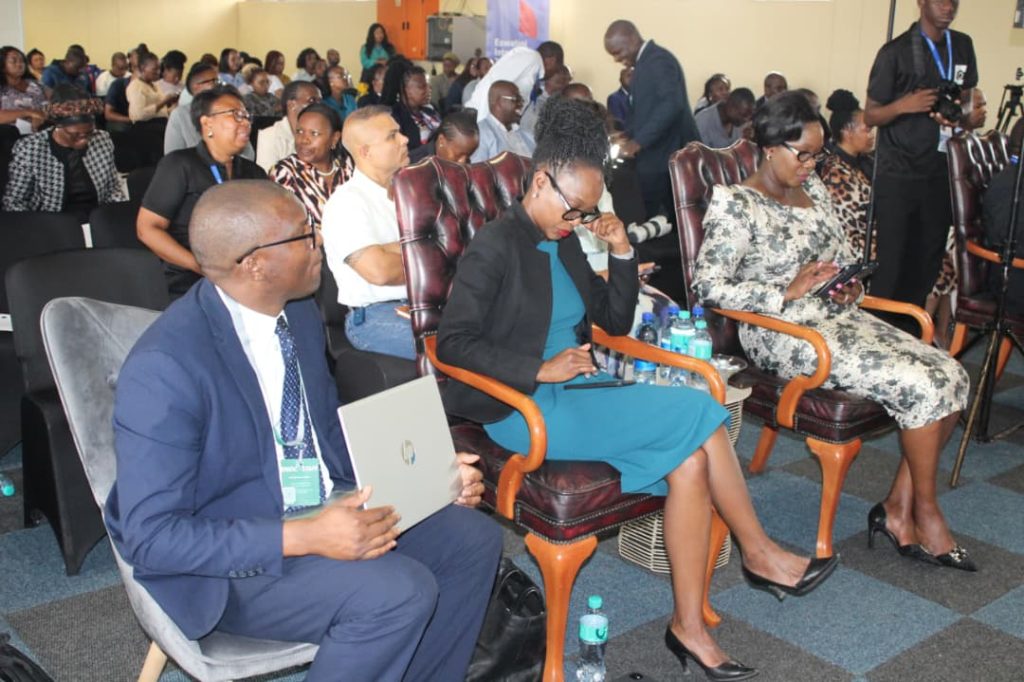
The Government of Eswatini has reactivated the Production Incentive Scheme (PIS 2.0) as part of efforts to restore growth in the textile and clothing sector, a major source of jobs for women and youth.
During the Eswatini National Industrial Corporation (ENIDC) Industry Finance Seminar held on Monday at the Mavuso Trade and Exhibition Centre Business Centre in Manzini, Minister of Commerce, Industry and Trade, Manqoba Khumalo, stated that the scheme’s relaunch shows the government’s commitment to revitalizing industrial growth and empowering micro, small, and medium enterprises (MSMEs).
“The funds under this scheme are meant to drive people, competitiveness, and innovation processes in the textile and clothing sector. PIS 2.0 has therefore been enhanced to match the current situation as deemed fit by the Government of Eswatini,” he said.
The minister clarified that PIS 2.0 would be implemented in two phases over five years. Phase 1 targets MSMEs, ensuring their integration into value chains, while Phase 2, starting in the 2026/27 financial year, will include larger companies.
To show its seriousness, E1.35 million has been allocated annually for grants, with ENIDC responsible for managing the scheme alongside the ministry.
Khumalo explained that the scheme provides three vital facilities designed to improve access to finance and boost competitiveness:
Inclusion of MSMEs to ensure smaller enterprises benefit directly.
Through this combination of grants and zero-interest loans, the government aims to motivate companies to invest in process enhancements, technology adoption, and quality improvement.
“Through this initiative, the Government of Eswatini seeks to foster participation of industrial MSMEs in the textile and clothing industry and enhance financial inclusion, while also encouraging companies to invest in process and quality improvements,” the Minister said.
While recognizing Eswatini’s historical leadership in manufacturing value addition, the minister warned that recent declines threaten jobs and industrial resilience.
“This downward trend endangers not only jobs but the very foundation of our industrial growth. In response, ENIDC has been tasked with establishing sector-specific funds to reignite growth and resilience in industrialization,” he emphasized.
Khumalo further highlighted the need to strengthen Eswatini’s supply chain to sustain the textile industry long-term.
“With the textile sector playing a crucial role in job creation, especially for women and young people, our ministry is now working on the entire supply chain. For example, why is fabric not produced in Eswatini? That’s the thinking we are developing. That is why we are working very hard to establish a cotton industrial park adjacent to Mpakeni Dam so that fabric is made locally,” he said.
The seminar also stressed the partnership between ENIDC and the Industrial Development Corporation of South Africa (IDCSA). Khumalo described the IDC as a “big brother” to Eswatini in industrial finance, underscoring the importance of regional cooperation.
This collaboration will fund projects jointly in Eswatini, a move Khumalo said is “built on a shared vision and mutual commitment to industrial growth across the SADC region.”
He emphasized that industrial finance should not be seen as a government-only effort, but as a joint mission involving commercial banks, development finance institutions, and the private sector.

By empowering MSMEs and retooling the textile sector, Khumalo said the government directly addresses community livelihoods, women and youth employment, and the country’s economic growth.
ENIDC Acting Managing Director Bongani Msibi added, “Industrial development finance is not only about mobilizing capital but also about unlocking opportunities to stimulate enterprise and create conditions for sustainable economic development and decent employment in the country.”
He committed ENIDC to supporting Eswatini’s industrialization, encouraging private sector involvement, and ensuring financing reaches the sectors and entrepreneurs who will drive growth and create jobs for emaSwati.
100% grant for approved interventions.
Interest-free loan for working capital, valid for three months.


